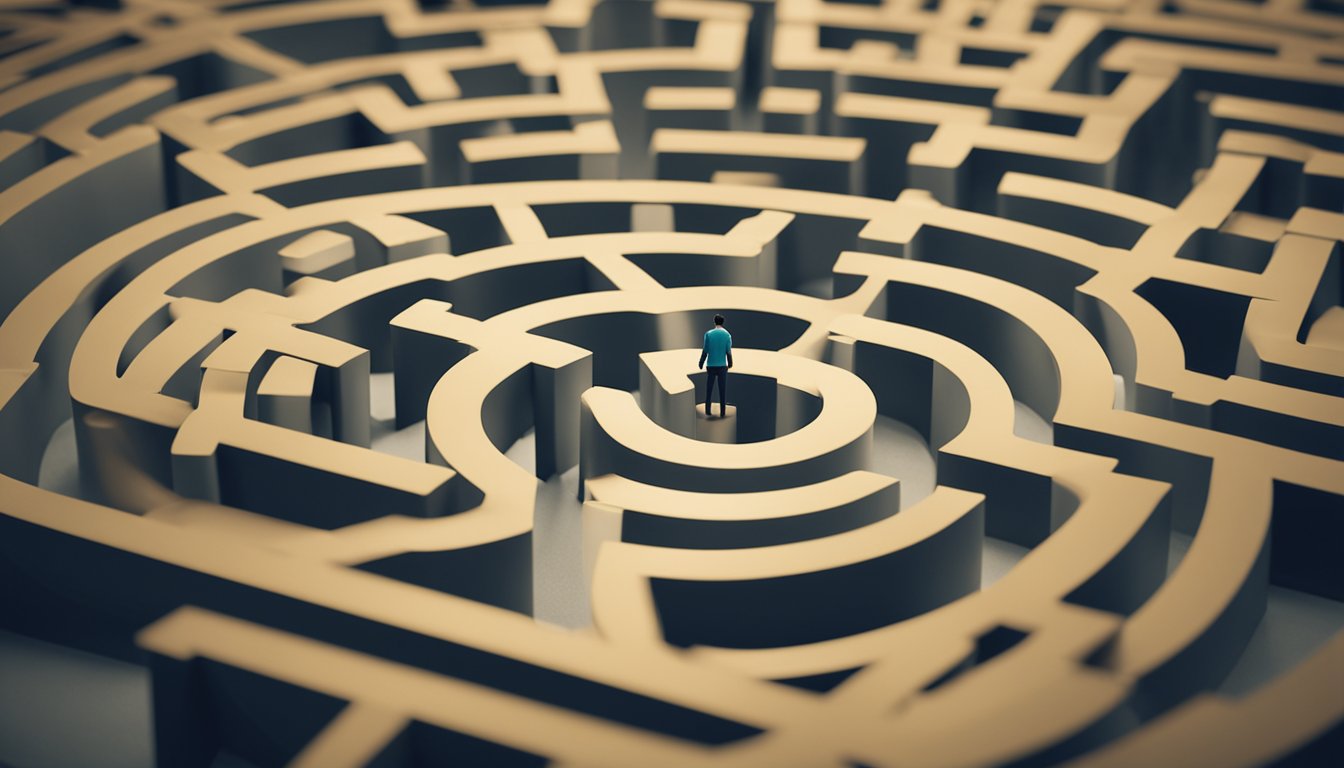Late updated: 14 Aug 2024 08:08
Written by: Ella Thompson
Challenges In Early Stages Of Addiction Recovery: Overcoming Initial Obstacles
The journey of addiction recovery can be one of the most demanding endeavours an individual ever undertakes. The early stages are particularly fraught with obstacles, demanding a high level of commitment and resilience. One of the foremost challenges is managing withdrawal symptoms, both physical and emotional, which can be intense and overwhelming.

For many, the struggle extends beyond just physical symptoms. Emotional triggers often play a significant role, causing feelings of doubt or fear of relapse. Establishing a routine can be incredibly beneficial in maintaining sobriety. Simple daily structures provide a sense of stability and purpose, crucial during these tumultuous times.
Support networks also make a world of difference. Whether it's through professional help, group therapy, or close friends and family, having a reliable support system can greatly enhance the likelihood of long-term recovery. Facing the early challenges head-on, with a solid plan and support, sets the foundation for a successful journey towards sobriety.
Key Takeaways
- Withdrawal symptoms are a major early challenge in recovery.
- Consistent routines and support networks are crucial for maintaining sobriety.
- Emotional triggers require attention and strategic management.
Understanding Addiction and Early Recovery
Addiction is a complex condition that affects many aspects of a person's life. Early recovery presents unique challenges as individuals work to regain stability and improve their overall well-being.
The Science of Addiction
Addiction is characterised as a chronic disease that affects the brain's reward system. Drugs and alcohol influence the production of dopamine, which creates feelings of pleasure. Over time, the brain becomes reliant on these substances to produce dopamine, leading to cravings and compulsive use.
Genetics play a significant role in the susceptibility to addiction. Environmental factors, such as stress and peer pressure, also contribute. The process of developing an addiction can vary, but the end result is generally a diminished ability to exert self-control.
Defining Early Stages of Recovery
The first 90 days are critical in the recovery process. During this period, individuals often deal with withdrawal symptoms and work on detoxification. Establishing structure, such as maintaining a daily schedule, is crucial.
Early recovery necessitates changing people, places, and things that trigger substance use. The success in these stages is greatly influenced by the support systems in place, including therapy and support groups. The goal is to foster a healthy environment that encourages sobriety.
Common Psychological and Emotional Challenges
Individuals in early recovery frequently experience psychological and emotional hurdles. Anxiety, stress, and depression are common as the brain readjusts to normal functioning without substances. Emotional cravings can be intense, making it important to develop coping mechanisms.
Emotional health is paramount. Many individuals benefit from practising skills like urge surfing, which help manage the desire to use drugs or alcohol. Rebuilding relationships and finding healthy distractions are key strategies. Professional mental health support can provide additional assistance during this vulnerable period.
Developing Recovery Strategies

In the early stages of addiction recovery, developing effective strategies is crucial for long-term success. Key areas of focus include building a supportive environment, implementing relapse prevention and coping mechanisms, and creating a sustainable routine.
Building a Supportive Environment
A robust support system is essential in the recovery from addiction. We must prioritise forming strong connections with supportive family members, friends, and professionals. Support groups and family therapy play significant roles in this process. In these settings, individuals can share their experiences and gain encouragement and motivation.
Living in a sober living environment can also provide the stability needed for maintaining sobriety. Sober living homes offer a structured atmosphere and minimise exposure to relapse triggers. It's critical to curate an environment that nurtures healthier life choices and shields us from daily stressors.
Relapse Prevention and Coping Mechanisms
Relapse prevention is a proactive element of a recovery plan. It involves recognising triggers and developing coping strategies to manage them. Cognitive behavioural therapy (CBT) and a relapse prevention plan can equip us with action-oriented techniques to manage cravings and high-risk situations.
Identifying personal triggers, such as stress or specific social settings, allows us to prepare effective coping mechanisms. These might include mindfulness practices, exercise, or engaging in hobbies. By practising these skills, we reduce the likelihood of relapse and bolster our self-efficacy.
Creating a Sustainable Routine
Establishing a routine promotes a sense of structure and predictability, which is beneficial during recovery. Implementing consistent daily activities helps in creating healthy habits and reduces the chance of succumbing to relapse.
We should focus on incorporating self-care practices and maintaining a balanced lifestyle. Activities such as regular exercise, healthy eating, and sufficient sleep are pivotal for physical and mental well-being. Additionally, continuous self-improvement through learning new life skills can be profoundly rewarding and provide a sense of purpose.
Daily structures not only aid in navigating life free from addiction but also contribute to overall health, making the recovery journey more sustainable.
Frequently Asked Questions

Early recovery from addiction presents unique physical, emotional, and mental challenges. It's important to understand these obstacles and employ effective strategies to navigate through them successfully.
What are typical obstacles encountered during initial recovery from addiction?
Individuals often face acute withdrawal symptoms such as anxiety and sleep disturbances. Physical and emotional cravings are common. There's also the challenge of learning to function without the substance, often leading to substitute addictions like food or workaholism.
How does one cope with the emotional impact of early sobriety?
Emotional turbulence is frequent, marked by feelings of anxiety, depression, and mood swings. Engaging in structured activities, seeking therapy, and developing a support network can help manage these emotions. Participating in group meetings and counselling can also offer emotional stability.
What strategies can support individuals overcoming cravings in early recovery?
Cravings can be intense and challenging. Techniques such as urge surfing can be effective. This involves recognising cravings as temporary and riding them out without acting on them. Other methods include distraction techniques, mindfulness, and engaging in physical activities.
How do interpersonal relationships influence the early stages of addiction recovery?
Supportive relationships are crucial. Family and friends can provide encouragement and accountability. Conversely, toxic relationships can trigger relapse. Establishing boundaries and seeking positive connections can help enhance recovery efforts.
What role does mental health play in the onset of recovery from substance abuse?
Mental health issues often co-exist with addiction. Addressing conditions like depression or anxiety is essential for comprehensive recovery. Integrated treatment approaches that combine mental health and addiction services can be particularly effective.
In what ways can relapse be prevented during the initial phase of recovery?
Relapse prevention involves recognising triggers and developing coping strategies. Regular participation in aftercare programmes, maintaining healthy routines, and seeking ongoing support from therapy or peer groups can significantly lower the risk of relapse.
